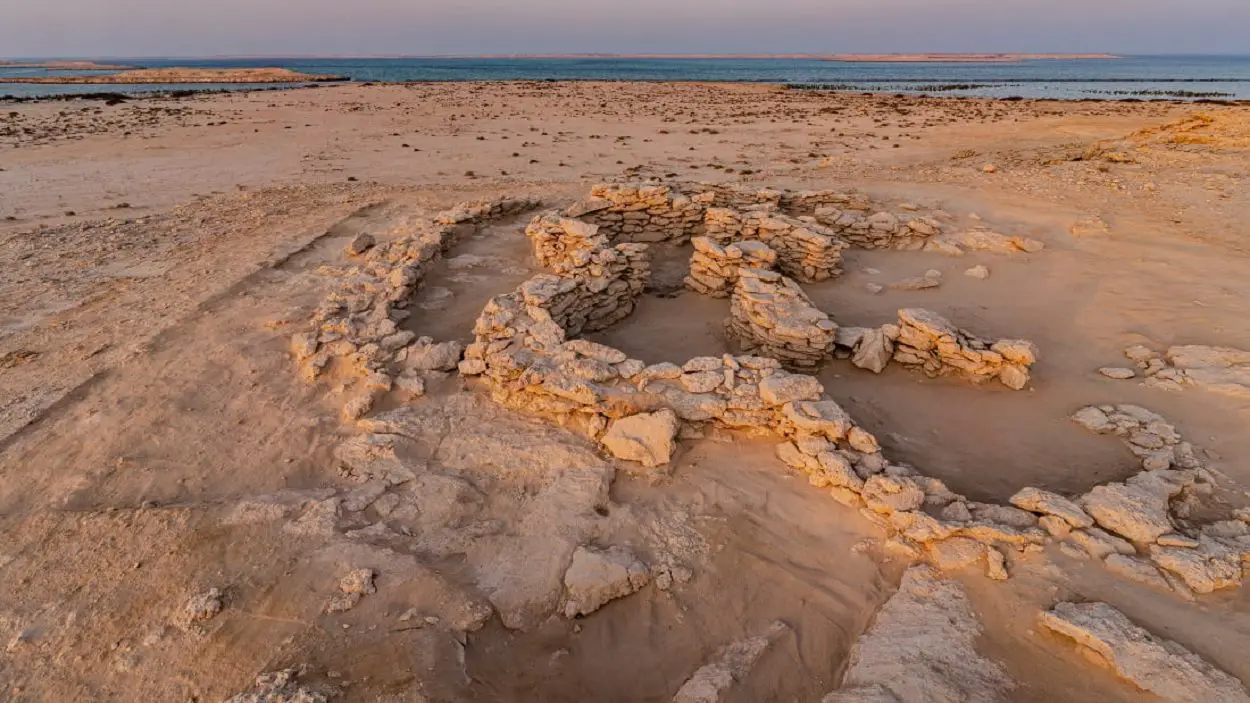Archaeologists from the Department of Culture and Tourism – Abu Dhabi (DCT Abu Dhabi) have uncovered the earliest known buildings in the UAE and the broader region, dating back more than 8,500 years.
The discovery was made on the small island of Ghagha, where researchers found several structures dated using a carbon-14 analysis on pieces of charcoal found in situ, that places the settlement to almost 6500 BC.
The structures are circular in shape and are made from local stone, preserved to a height of almost one metre. The settlement was likely permanent, relying on gathering resources from the sea and hunting, evidenced by the discovery of finely worked stone arrowheads.
It was previously thought that the region was first settled during the Neolithic period as a result of long-distance maritime trade, however, the discovery on Ghagha has demonstrated that Neolithic settlements existed prior to the onset of trade and was instead, a result of local economic and environmental conditions that led to the first settled life in what is now the United Arab Emirates.
Until the excavations of Ghagha, the earliest known structures in the United Arab Emirates were found on the island of Marawah, also off the coast of Abu Dhabi. Taken with the evidence from Marawah, the new evidence from Ghagha indicates that the islands of Abu Dhabi were a focal point for human innovation and settlement during the Neolithic period – a time of fundamental change throughout much of the ancient world.
HE Mohamed Al Mubarak, Chairman of DCT Abu Dhabi, said: “The discoveries on Ghagha island highlight that the characteristics of innovation, sustainability and resilience have been part of the DNA of the inhabitants of this region for thousands of years.”
Department of Culture and Tourism
Header Image Credit : DCT Abu Dhabi





